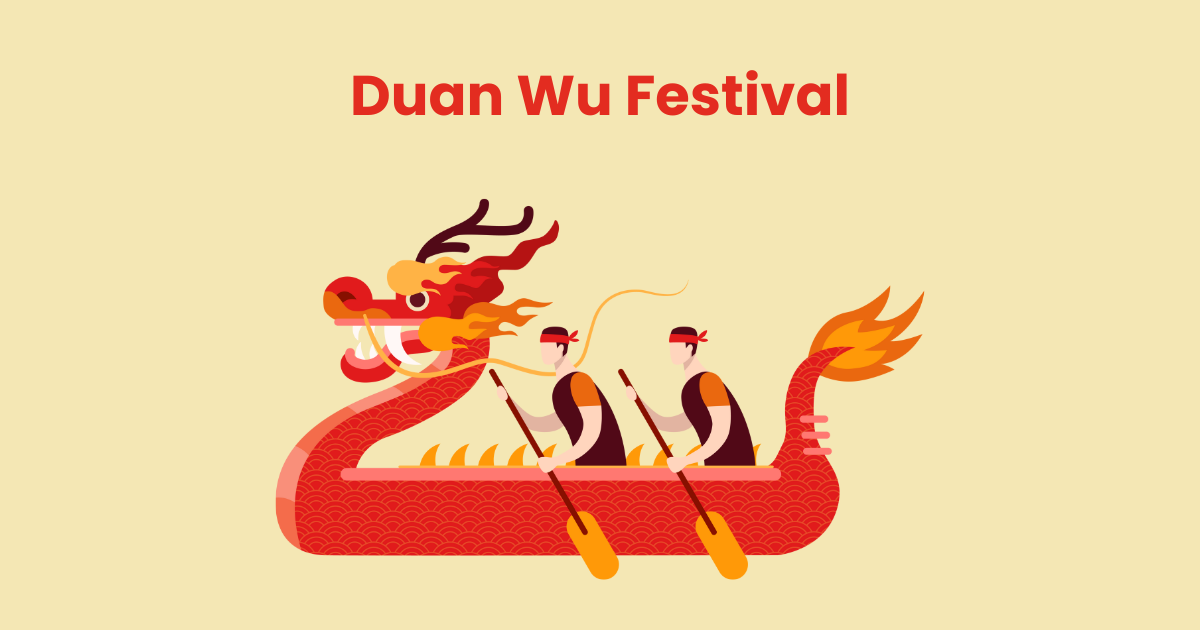Most of the major Chinese holidays, including the Spring Festival and Lunar New Year, are probably familiar to you. The Mid-Autumn Festival and Tomb Sweeping Day Festival are well known, but you may not be aware of the Duan Wu Festival, which is China’s fifth-largest festival. In September 2009, UNESCO added the Duan Wu festival to the Intangible Cultural Heritage list. This makes it the first Chinese festival to receive the honor. Everyone has a whole holiday to enjoy themselves and take part in group activities during the festival, which lasts for three days.
What is the cultural significance of that holiday, and how is it observed? In this article, let’s dive in!
Table of Contents
History of the Duan Wu Festival
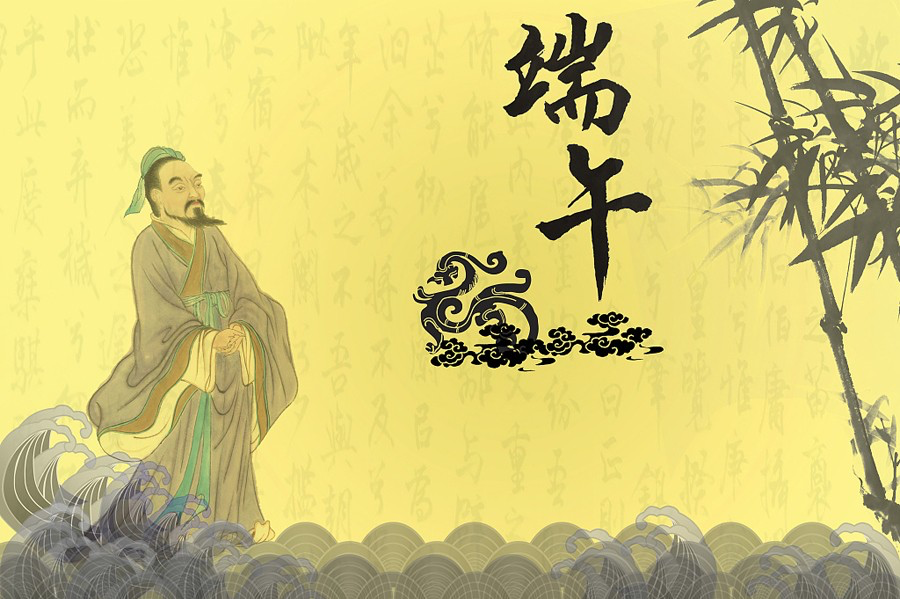
Since ancient times, people have gathered for the Duan Wu festival in honor of Qu Yuan, a renowned national poet who lived in the state of Chu during the Warring States period (475 B.C. to 221 B.C.).
Qu Yuan served as the Zhou Dynasty’s prime minister. As he was a prolific poet and reformer, he contributed to promoting the prosperity of the state. But after his fruitless attempt to restructure the nation, the king banished him, and on the 5th day of the fifth lunar month, he decided to commit suicide to avoid having to witness the Qin Dynasty invade his homeland. People tried to save Khuc Nguyen by rowing boats after he fell, but they were unsuccessful ever since Chinese people have set aside the 5th day of the fifth lunar month to honor this talented poet.
What is The Duan Wu Festival for?
There are two primary parts of the Duan Wu Festival: Festival and Ceremonies with different purposes:
- Ceremony: To remember, honor, and express gratitude to their ancestors and the gods of the rivers and seas, especially Khuc Nguyen, Chinese fishermen will burn incense.
- Festival Section: Here, guests can watch fishermen with exceptional talent and skill compete in dragon boat racing. The Dragon Boat Festival was filled with energy and joy as the sounds of pounding drums, and cheers echoed throughout the sky.
- Side activities: wine drinking contests, rice cooking contests, dragon head carving, and so on are also organized and held to help you learn more about the local culture and customs.
Popular Activities at The Duan Wu Festival
- Racing Dragon Boat (龙舟赛 / Lóngzhōu Sài)
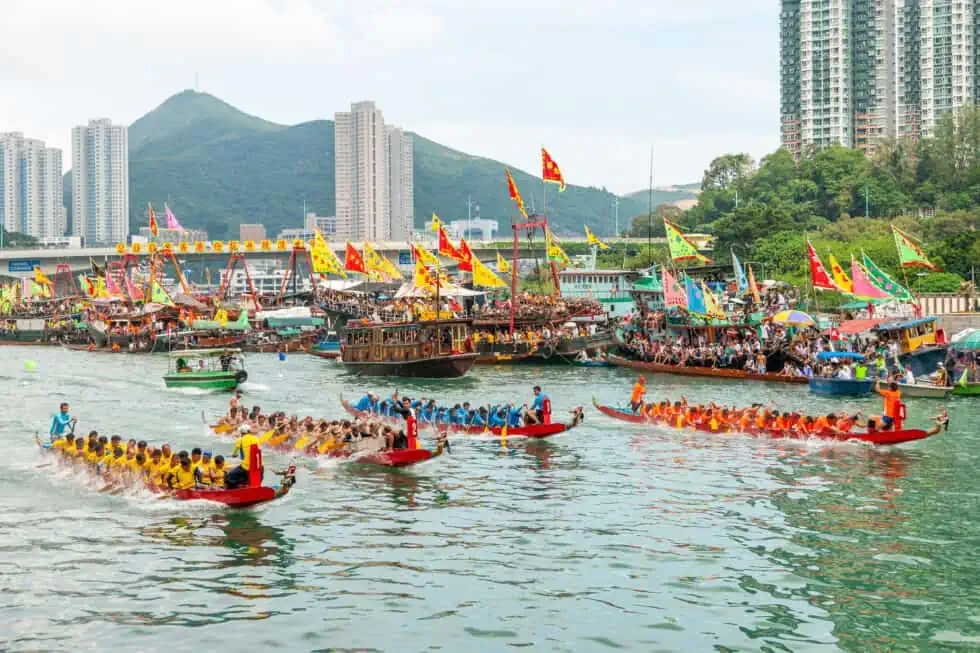
The sport of dragon boat racing dates back over 2,500 years. Originally intended to imply jumping into their boat and going into the water to try to save him or get the poet’s body back. Later on, it evolved into racing dragon boats. Drums beat in the background as dragon boat teams paddle quickly and in unison during the races. The winning team is supposed to have good fortune and a happy life next year.
- Eating Sticky Rice Dumplings (粽子/ Zòngzi)
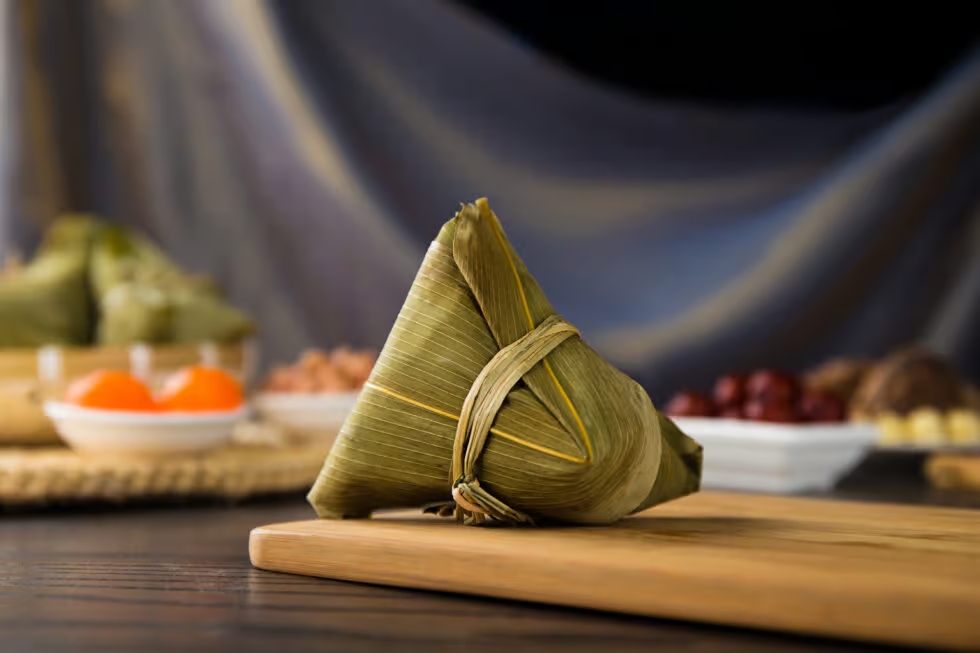
Duan Wu Festival Zongzi is the most traditional food item. A legend associated with the Qu Yuan commemoration claims that rice lumps, resembling zongzi, were thrown into the river to prevent fish from consuming his drowned body.
- Drinking Realgar Wine (雄黃酒 / Xiónghuáng Jiǔ)
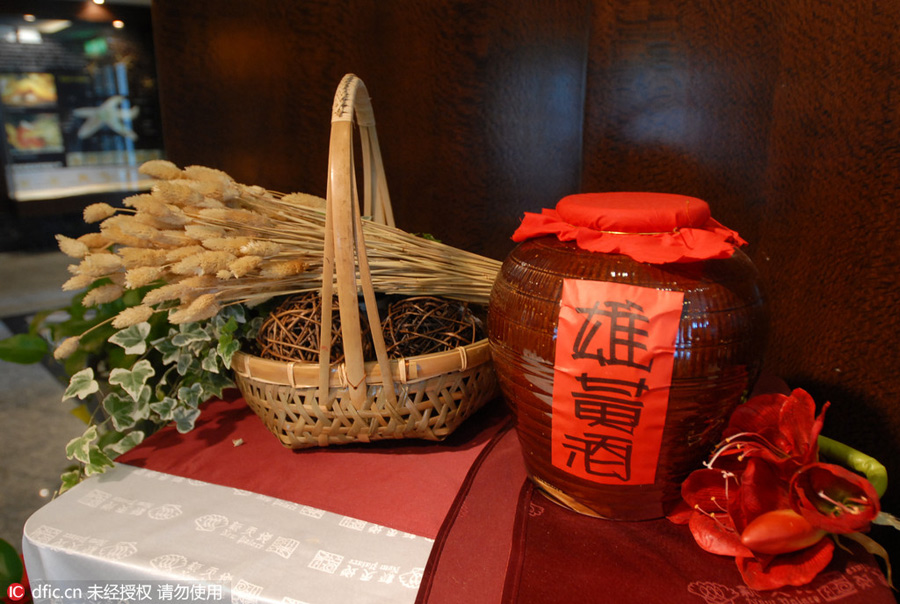
There is an old saying that ‘drinking realgar wine drives diseases and evils away!’ Realgar wine is a Chinese alcoholic beverage made from fermented cereals and powdered realgar (ruby-like arsenic sulfide).
- Hanging mugwort (挂艾草 / Guà ài Cǎo)
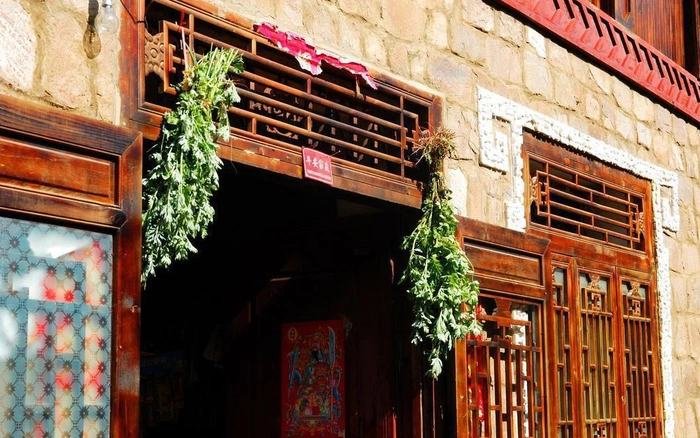
Many Chinese people consider this time of year to be particularly dangerous because illness is common, so extra precautions must be taken to protect their families. Families place “Aicao” (wormwood) on their doors for protection.
- Wearing Perfume Pouches ( 香水袋 / Xiāngshuǐ Dài)
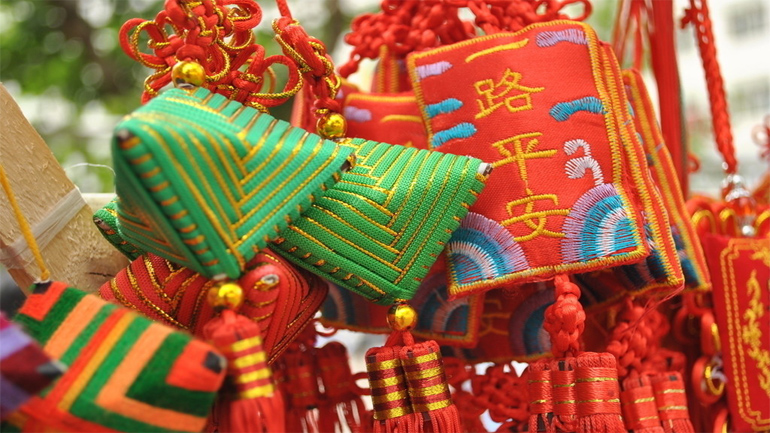
Before the Dragon Boat Festival, parents typically prepare perfume pouches for their children. They sew small bags from colorful silk cloth, fill them with perfumes or herbal medicines, and tie them shut with silk threads.
- Wear a five-colored bracelet ( 五色手环/ Wǔsè Shǒu Huán)
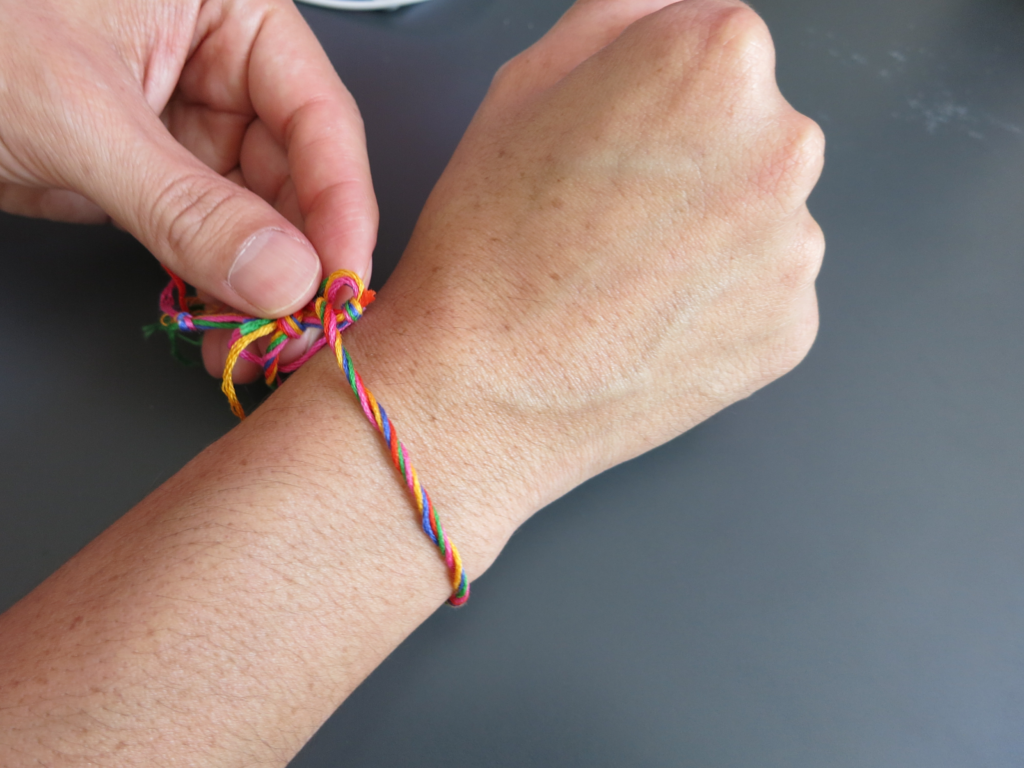
During major holidays, Chinese children wear five-coloured bracelets (green, white, yellow, red, and black) on their hands. Bracelets are used as accessories as well as to accompany jewelry. A five-color string holds a special significance in China, as it is thought to contain magical and healing properties.
- Flying a kite (放风筝/Fàng Fēngzhēng)
Kite flying is another popular custom in the Duan Wu festival. People fly their kites, sending their hopes and blessings to distant friends as well as sending off misfortune.
- Pasting Portrait of Zhong Kui (钟馗 / Zhōng Kuí)
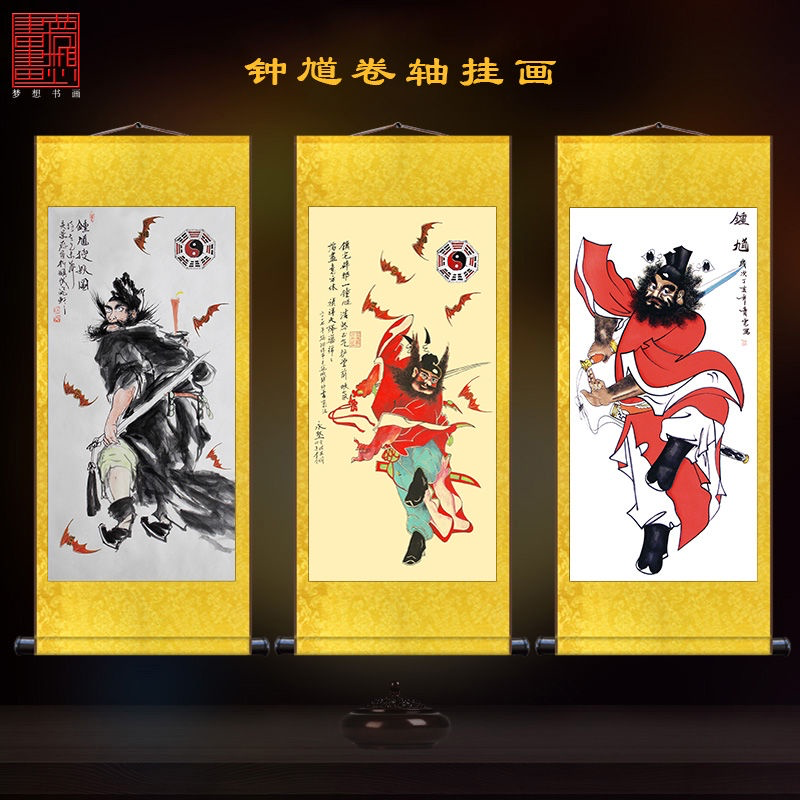
Zhong Kui is a famous exorcist. His image, a fierce-looking male wielding a magic sword, is hung in Chinese homes to ward off evil spirits and demons, particularly during the Duan Wu festival.
You May Also Like:
- Qingming Holiday
- How To Celebrate The Chinese Lantern Ceremony In 2024
Different Customs in Duan Wu Festival Across The World
China, where the Dragon Boat Festival originated, celebrates it on the largest scale and with the most events. Because of the obvious cultural differences between southern and northern China, as well as eastern and western China, the way the Dragon Boat Festival is celebrated varies from place to place.
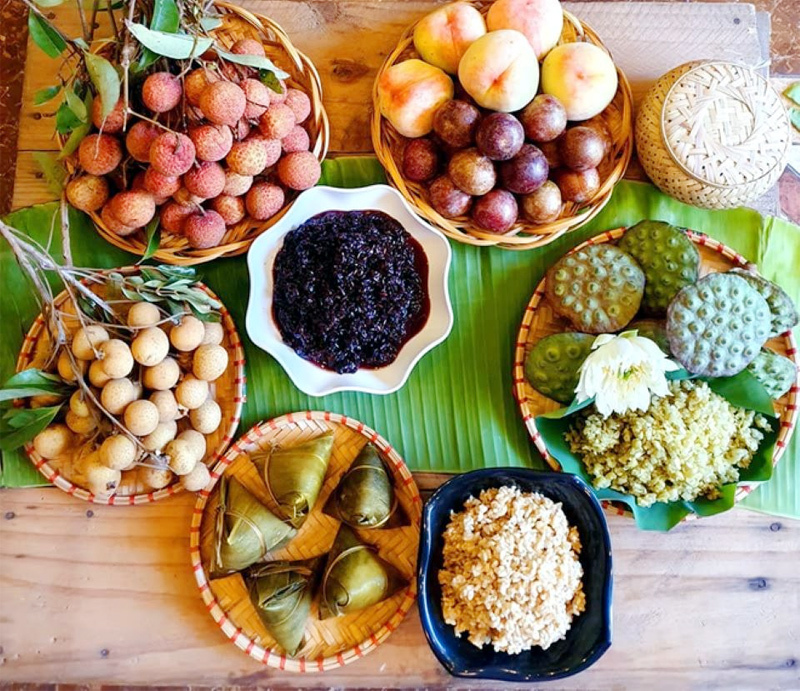
Other Asian nations, such as South Korea, Vietnam, Japan, Singapore, and Malaysia, also observe the holiday with variations. For instance, Nyonya in Singapore makes Zongzi using seafood and local species. With the immigration of Chinese, the festival was also introduced to North America and Europe. However, the main event of the celebration is dragon boat racing.
More tips and advice about events? Pick an event that you’re concerned with, and we’ll give you a helping hand!
FAQs
What is the Duanwu festival?
Duanwu festival is one of the five most important festivals in the history of Oriental culture. It is also known as the Dragon Boat Festival or Double Fifth. Dragon Boat Festival is a day when Chinese people pray for peace and hope to avoid epidemics. The Dragon Boat Race on the River is the holiday’s highlight. Rowing groups will compete fiercely as the pounding drums echo throughout the river. The Dragon Boat Festival’s most popular dish is Tzung Tzu (rice, pork, beans, and eggs wrapped in bamboo leaves).
What is the story behind the Dragon Boat Festival?
According to historical records, this festival was held to honor poet Khuat Nguyen, a patriotic hero who committed suicide by jumping into the river. The boat race represents an attempt to save the hero, Qu Yuan.
What is the story behind the dumpling festival?
The rice dumpling tradition is intended to remind us of the fishermen who scattered rice into the Miluo River to appease the river dragons and keep them from devouring Qu Yuan.
Ref: Chinahighlights
